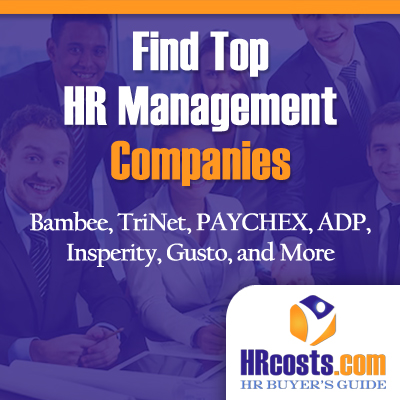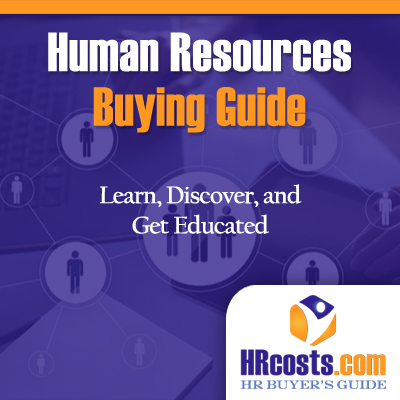
Employer of Record (EOR) Outsourcing
In today’s global economy, businesses are frequently looking for ways to operate efficiently, reduce overhead, and navigate complex international employment laws. One solution that has grown in popularity is the use of an Employer of Record (EOR). In this article, we’ll delve deep into what an EOR is, the advantages and disadvantages of using one, and additional insights to help you make an informed decision for your business.
What is an Employer of Record (EOR)?
An Employer of Record (EOR) is a third-party organization that serves as the official employer on behalf of another company. This means that while the company manages its employees in terms of tasks, roles, and responsibilities, the EOR handles all the administrative, legal, and human resources responsibilities related to employment.
Typically, EOR services might include:
- Payroll administration
- Benefits administration
- Tax filings
- Compliance with local employment laws and regulations
- Onboarding and offboarding processes
- Employee insurance
- Handling employment disputes

What exactly is an EOR worker? In short, an EOR Worker is an employee who, while performing tasks and roles for one company, is officially employed and managed in terms of administrative, legal, and HR responsibilities by a third-party organization known as the Employer of Record (EOR).
Advantages of Using an EOR
- Simplified Global Expansion: For companies looking to expand into new countries, an EOR already understands local employment laws, reducing the risks of non-compliance.
- Reduced Administrative Burden: EORs handle complex HR tasks, allowing businesses to focus on core functions and strategic growth.
- Cost-Efficiency: Hiring and maintaining an in-house HR team, especially in multiple countries, can be costly. Using an EOR can lead to cost savings in the long run.
- Flexibility: EORs allow businesses to scale up or down quickly, adapting to market demands without the long-term commitments that traditional hiring processes might entail.
- Risk Management: With an EOR, the liability of employment is primarily shifted to the EOR, providing a layer of protection for companies against potential legal disputes or infractions.
Disadvantages of Using an EOR
- Lesser Control: While businesses control the everyday tasks of their employees, they might feel they have less control over the broader employment process since the EOR handles many of the administrative details.
- Cost Implications: There’s a price for the services an EOR offers. Businesses need to weigh the costs against the benefits and potential savings.
- Dependency: Relying heavily on an EOR can lead to a dependency, where the business might feel tied to the EOR’s processes and protocols.
- Potential Culture Gap: Using an EOR, especially in international settings, might introduce cultural nuances that can affect company culture and the integration of employees.
EOR vs PEO – What’s the Difference?
EOR (Employer of Record) and PEO (Professional Employer Organization) are both HR solutions that companies use to manage various employment-related responsibilities. While they have some similarities, they also have distinct differences. Here’s a brief overview of each and how they differ:
- EOR (Employer of Record):
- Definition: An EOR is a third-party organization that becomes the legal employer for tax and compliance purposes. They take on the responsibility for payroll, tax withholdings, benefits administration, and ensuring compliance with local labor laws.
- Scope: EORs typically handle a broader range of tasks, including visa and work permit processing for international assignments.
- Liability: The EOR assumes a significant level of liability and risk associated with employment, such as adhering to local employment laws and regulations.
- Usage: Companies often use EORs when expanding into new countries where they don’t have a legal entity or when they need to quickly onboard employees in locations without establishing a local presence.
- PEO (Professional Employer Organization):
- Definition: A PEO is a firm that allows small and medium-sized businesses to outsource many of their human resource tasks. Under a PEO arrangement, the PEO co-employs workers alongside the client company.
- Scope: PEOs generally offer a range of HR services including payroll, benefits administration, HR consultancy, and regulatory compliance assistance.
- Liability: In a PEO relationship, the client company and the PEO share certain employer responsibilities. The PEO handles HR compliance, payroll, and related tasks, while the client company remains responsible for day-to-day management and operations of the employees.
- Usage: Companies use PEOs to offload HR tasks and gain access to broader benefits packages or HR expertise that they might not be able to afford on their own.
Differences:
- Legal Employer Status: EOR becomes the legal employer, whereas in a PEO arrangement, there’s a co-employment model where both the PEO and the client company share responsibilities.
- Geographical Focus: EORs are often used for international operations, especially in countries where a company doesn’t have a legal entity. PEOs are more commonly used within a company’s home country.
- Scope of Services: EORs might offer a broader range of services including visa processing, while PEOs often focus on HR-related services.

Ultimately, the choice between an EOR and a PEO depends on a company’s specific needs, the geographical locations they operate in, and the range of services they require.
Things to Consider Before Opting for an EOR
- Business Objectives: Understand why you’re considering an EOR. Is it for global expansion, cost savings, flexibility, or a combination?
- Research: Not all EORs are created equal. It’s crucial to vet potential EORs, checking their track record, client testimonials, and the range of services they offer.
- Alignment: Ensure the EOR aligns with your company’s values, culture, and objectives. This will lead to a smoother collaboration.
- Long-term Strategy: Consider how an EOR fits into your long-term business strategy. Is it a temporary solution or a long-term partnership?
Using an Employer of Record can provide significant advantages for businesses, particularly those looking to expand globally or streamline their HR functions. However, it’s essential to be aware of the potential drawbacks and ensure that using an EOR aligns with your company’s goals and strategies. By doing your research and understanding both the benefits and challenges, you can make an informed decision that best suits your business needs.
What are the Risks and Tax Implications With Employer of Record Service?
An Employer of Record (EOR) is an organization that handles the administrative, payroll, tax, and legal aspects of employing workers on behalf of another company. Companies may opt to use an EOR when hiring employees in foreign jurisdictions or to simplify their employment processes.
While EOR services offer several benefits, there are also risks and tax implications associated with their use. Here are some of them:
Risks:
- Due Diligence: Relying on an EOR means trusting another entity with critical HR, payroll, and legal responsibilities. If the EOR fails to perform their duties correctly, it could result in legal repercussions or financial penalties for your company.
- Control: While an EOR handles many of the administrative burdens, companies might feel they are ceding too much control over key aspects of the employee relationship.
- Cost: Employing an EOR service comes at a price. Depending on the agreement, it might become a significant overhead cost for the company.
- Employee Engagement: Since employees might technically be working for the EOR, there’s a risk that they might not feel a strong connection or loyalty to your company.
- Contractual Issues: Any misunderstandings or conflicts in the terms of agreement with the EOR can lead to disputes or potential liabilities.
Tax Implications:
- Compliance: A major advantage of using an EOR is ensuring compliance with local tax laws. The EOR is responsible for withholding and remitting the correct amount of payroll taxes, and they generally have expertise in local tax regulations.
- VAT/GST: Some countries have value-added tax (VAT) or goods and services tax (GST) implications that can affect how services are billed and taxed. An EOR should be aware of these and handle them appropriately.
- Double Taxation: If not handled correctly, there can be scenarios where both the client company and the EOR face taxation, or the employee gets taxed in both their home country and the country of employment. Proper structuring and understanding of tax treaties are essential to avoid this.
- Benefit Taxation: In some jurisdictions, certain employee benefits may be considered taxable income. An EOR should be knowledgeable about which benefits are taxable and handle the necessary withholdings.
- Tax Deductions: The expenses related to EOR services might be deductible for the client company, but this depends on local regulations and the nature of the agreement with the EOR.
- Permanent Establishment Risk: Using an EOR might help reduce the risk of creating a taxable presence, or “permanent establishment,” in a foreign country. However, companies should consult with tax professionals to ensure they aren’t inadvertently creating a taxable entity.

While EOR services offer a streamlined solution to hiring and managing employees, especially in foreign jurisdictions, it’s vital for companies to be aware of the associated risks and tax implications. Consulting with legal and tax professionals before engaging an EOR can help mitigate potential pitfalls.
How Much Does an Employer of Record Service Cost?
As of October 2023, some EOR providers charge a uniform fee for every employee, whereas others adjust their fees based on the employee’s location and the duration of the contract. Fees for EOR services can vary, with prices ranging from $250 to more than $1200, contingent on the provider you select. It’s customary for employees to receive their salary in the currency of their respective regions to adhere to local regulations.
The cost of an Employer of Record (EOR) service can vary significantly based on several factors. While it’s challenging to provide an exact figure without specifics, we can delve into the various cost components and factors that influence the overall price. Here’s a detailed breakdown:
1. Base Fees:
- Fixed Monthly/Annual Fees: Some EORs charge a flat rate per month or year regardless of the number of employees or the complexity of services.
- Percentage of Payroll: Others might charge a fee based on a percentage of the total payroll they manage. This can range from a few percentages up to 20% or more, depending on the region and the complexity of employment laws.
2. Onboarding Fees:
- EORs might charge a one-time setup or onboarding fee for each new employee. This covers the administrative cost of adding a new employee to their system, setting up payroll, etc.
3. Country-Specific Costs:
- Operating in countries with complex labor laws, high tax rates, or extensive compliance requirements can increase the EOR’s fees. For example, employing someone in Western Europe might be more expensive than in Southeast Asia due to differing regulations, benefits, and taxes.
4. Employee Benefits:
- The cost of providing mandatory benefits, such as health insurance, pension contributions, and others, will be passed on to the client company. This can vary widely based on local regulations and the type of benefits chosen.
5. Compliance and Regulatory Costs:
- Some regions require periodic audits, filings, or other compliance activities. If the EOR handles these for you, there might be associated costs.
6. Currency Exchange and Transaction Fees:
- If you’re paying the EOR in a different currency than the one they pay your employees in, there might be currency conversion costs. Additionally, international wire transfer fees might apply.
7. Service Tier:
- EORs might offer different service tiers, ranging from basic payroll processing to comprehensive HR management, talent acquisition, and strategic HR consulting. The more services you opt for, the higher the cost.
8. Contract Length and Volume Discounts:
- Longer-term contracts or hiring a larger number of employees through the EOR might qualify you for discounts.
9. Incidental Costs:
- There might be additional costs for specific services like visa and work permit processing, background checks, or specialized training programs.
10. Termination Costs:
- If an employee contract is terminated, there might be fees associated with severance, benefits payout, or other termination-related costs.
Tips for Evaluating Costs:
- Get Detailed Quotes: Always ask for a detailed breakdown of fees and services when getting quotes from EOR providers.
- Clarify Hidden Fees: Ensure there are no hidden costs or additional charges that might arise later.
- Negotiate: Depending on your business’s size and the number of employees you plan to hire through the EOR, there might be room for negotiation.
- Review Contracts Carefully: Before signing any agreement, review it in detail, preferably with legal counsel, to ensure you understand all financial obligations.
The cost of an EOR service can vary significantly based on various factors. It’s essential to consider your specific needs, the regions you’re operating in, and the scope of services you require when budgeting for an EOR. Always compare multiple providers to get a sense of the market rate and ensure you’re getting value for your investment.
The Top 10 – Best Employer of Record (EOR) Companies
There are several reputable Employer of Record (EOR) companies that were frequently recommended by experts and businesses. Here’s a list of some of the top EOR companies, along with a brief description of each:
Globalization Partners:
Globalization Partners offers Employer of Record (EOR) solutions, streamlining international business by handling legal and HR complexities. They eliminate barriers to global expansion, allowing companies to quickly onboard employees in new countries.
- Service Offers:
- Quick global team onboarding without setting up subsidiaries.
- Compliance with local labor laws and regulations.
- Payroll and benefits management in multiple countries.
- Simplified international HR and administrative support.
Safeguard Global:
Safeguard Global provides comprehensive Employer of Record (EOR) services, facilitating businesses to swiftly and compliantly expand their operations internationally. By handling intricate local labor regulations and administrative burdens, they ensure seamless integration into new markets without the need for establishing local entities, making global growth straightforward and efficient.
- Service Offers:
- Rapid deployment of a global workforce without local subsidiaries.
- Compliance assurance with in-country labor laws.
- Streamlined international payroll and benefits administration.
- Expert advice on global HR strategies and challenges.
Velocity Global:
Velocity Global is a leading provider of Employer of Record (EOR) services, enabling businesses to tap into international markets with ease. By managing intricate local employment requirements, they allow companies to hire worldwide without establishing local entities. Their solutions simplify global expansion, ensuring compliance, and reducing administrative challenges.
- Service Offers:
- Quick establishment of a global team sans local subsidiaries.
- Full adherence to local labor laws and regulations.
- Centralized international payroll and benefits processing.
- Dedicated support for global HR and operational needs.
ADP:
ADP, a global HR solutions provider, offers an Employer of Record (EOR) service to aid businesses in expanding across borders effortlessly. By taking on the intricacies of local employment compliance, ADP allows companies to hire globally without the challenges of setting up local entities. Their vast experience ensures smooth transitions into new markets, prioritizing compliance and efficiency.
- Service Offers:
- Seamless global workforce deployment without local entity setup.
- Assured adherence to in-country labor laws and regulations.
- Comprehensive international payroll and benefits management.
- Expert guidance on global HR challenges and strategies.
Papaya Global:
Papaya Global stands as a forefront leader in providing Employer of Record (EOR) solutions for businesses aiming for a global reach. By expertly navigating the complex waters of local employment regulations and administrative burdens, Papaya allows companies to swiftly hire talent anywhere in the world without the typical challenges of establishing a local entity. With their platform, businesses can engage in global expansion confidently, backed by Papaya’s commitment to transparency, compliance, and streamlined operations.
- Service Offers:
- Rapid global workforce onboarding without the need for local setup.
- Ensured compliance with local labor laws across multiple countries.
- Holistic management of international payroll and employee benefits.
- In-depth insights and support for global HR strategies and challenges.
Elements Global Services:
Elements Global Services EOR Description: Elements Global Services stands out as an innovator in delivering Employer of Record (EOR) solutions, facilitating businesses to seamlessly establish a footprint in global markets. They adeptly manage the maze of regional employment standards, allowing firms to recruit internationally without the intricacies of founding local subsidiaries. By leveraging Elements, organizations can undertake global ventures with assurance, benefiting from their dedication to compliance, operational excellence, and localized expertise.
- Service Offers:
- Expedited international team onboarding sans local establishment.
- Rigorous adherence to regional labor legislations and norms.
- Comprehensive management of overseas payroll and benefits.
- Expert consultancy on global HR practices and potential hurdles.
GoGlobal:
GoGlobal Services EOR Description: GoGlobal Services is a trailblazer in offering Employer of Record (EOR) services, empowering businesses to burgeon in international territories without hindrance. Navigating the labyrinth of country-specific employment protocols, GoGlobal permits enterprises to recruit and manage global talent devoid of the complexities linked with setting up local branches. By partnering with GoGlobal, companies can spearhead their international pursuits confidently, anchored by their unwavering commitment to compliance, adaptability, and regional acumen.
- Service Offers:
- Swift onboarding of global teams without local entity establishment.
- Full assurance of conformity with in-country labor laws and standards.
- All-encompassing administration of international payroll and benefits.
- Expert advice and support for nuanced global HR and operational challenges.
Mihi:
Mihi stands at the vanguard of Employer of Record (EOR) solutions, championing businesses in their quest for global dominance. Expertly deciphering the intricacies of varied employment landscapes, Mihi enables companies to hire talent across borders without the bureaucratic entanglements of creating local entities. Companies leveraging Mihi’s prowess are ensured a smooth sail into international waters, fortified by Mihi’s steadfast commitment to regulatory compliance, operational simplicity, and local insights.
- Service Offers:
- Speedy integration of international teams without the demands of local establishment.
- Guaranteed alignment with diverse national labor regulations and customs.
- End-to-end handling of global payroll and employee perks.
- Invaluable guidance on international HR intricacies and evolving challenges.
Global PEO Services (GPS):
Global PEO Services is a premier provider of Employer of Record (EOR) solutions, anchoring businesses in their global expansion quests. With a deep understanding of multifaceted employment regulations, they enable enterprises to hire from a global talent pool without the administrative hurdles of founding local entities. Companies collaborating with Global PEO Services are guaranteed a hassle-free ingress into international markets, bolstered by their unwavering commitment to compliance, local expertise, and operational fluidity.
- Service Offers:
- Efficient integration of global teams devoid of local entity hassles.
- Assured conformity with country-specific labor standards and regulations.
- Comprehensive oversight of global payroll and benefit structures.
- Expert counsel on navigating global HR challenges and market intricacies.
New Horizons Global Partners:
New Horizons Global Partners offers avant-garde Employer of Record (EOR) solutions, driving businesses to effortlessly scale global frontiers. Proficient in untangling the web of diverse employment laws, they empower firms to harness global talent without the burden of crafting local infrastructures. Organizations partnering with New Horizons are afforded a frictionless passage to international markets, underpinned by a dedication to compliance, local mastery, and streamlined operations.
- Service Offers:
- Seamless onboarding of international personnel without establishing local branches.
- Meticulous alignment with region-specific labor mandates and protocols.
- Comprehensive administration of global payroll and welfare provisions.
- Expert insights and guidance on overarching global HR dynamics and challenges.
While the above companies are recognized for their quality services, it’s advised to conduct thorough research and due diligence before selecting an EOR provider. The “best” EOR company for one business might not necessarily be the best for another, depending on specific needs, target regions, and budget constraints.
